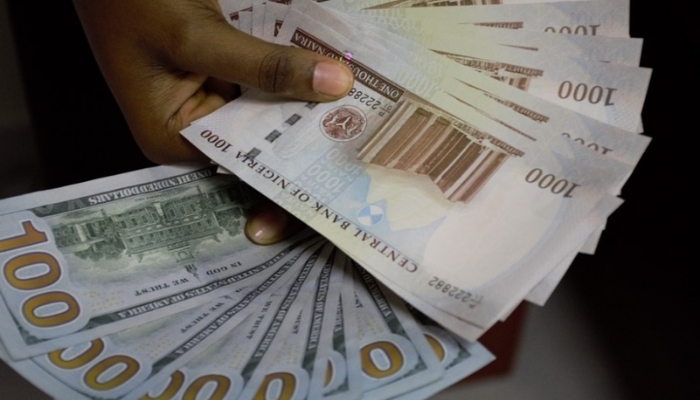Nigeria’s external reserves declined by $1.19 billion within 25 days, according to data from the Central Bank of Nigeria (CBN). The reserves, which stood at $40.920 billion on January 6, 2025, after closing 2024 at $40.877 billion, dropped to $39.723 billion by January 31, 2025.
The CBN has not published the external reserves data for the new month as of February 4, 2025.
Forecasts indicate further decline
The Financial Derivatives Company (FDC), led by Bismarck Rewane, projects that Nigeria’s external reserves will decline by 11.47 per cent in 2025, reaching $36.21 billion. The company also expects reserves to rise slightly to $37.65 billion in 2026.
According to the FDC, the Dollar/Naira exchange rate is expected to average N1,586 in 2025 and N1,575 in 2026. This projection follows the average exchange rate of N1,615 recorded in 2024.
Naira strengthens against the dollar
The naira has appreciated to its highest level in eight months, trading at N1,474.78 per dollar at the official foreign exchange market. The appreciation is attributed to government fiscal and monetary policies aimed at stabilising the currency.
In the parallel market, the naira strengthened to N1,595 per dollar, improving from the previous day’s N1,599.33. This was driven by a decline in demand for the dollar and various CBN policies.
CBN extends BDC operators’ access to Forex
The CBN has extended the temporary access granted to Bureau De Change (BDC) operators to purchase foreign exchange from the Nigerian Foreign Exchange Market (NFEM). This access, initially set to expire, has been extended until May 30, 2025, to meet retail market demand for invisible transactions.
Nigeria Returns to International Debt MarketAfter more than two years, Nigeria successfully issued $2.20 billion in Eurobonds in two tranches: $700 million maturing in 2031 and $1.50 billion maturing in 2034. The issuance attracted strong investor demand, with an order book exceeding $9 billion. The yields on Nigerian Eurobonds were considered competitive compared to other issuances from sub-Saharan Africa.
Reasons for reserves decline
Nigeria’s declining reserves have been linked to international debt servicing obligations and foreign exchange interventions by the CBN. However, an informed source explained that reserves are utilised for multiple purposes beyond CBN interventions.
“Reserves are used for many reasons and not just by CBN. When we repay external loans, or pay coupons on Eurobonds, or spend in USD based on budget, where do you think the money comes from?” according to BusinessDay.
Their source added, “I don’t monitor reserves but I know that there has been nothing done by CBN that remotely resembles defending the naira. The naira is appreciating so there is no need to defend it and the volume of CBN involvement in the markets is sub 10 per cent.”
Also, the outlook for Nigeria’s reserves remains uncertain, with further fluctuations expected in the coming months.










